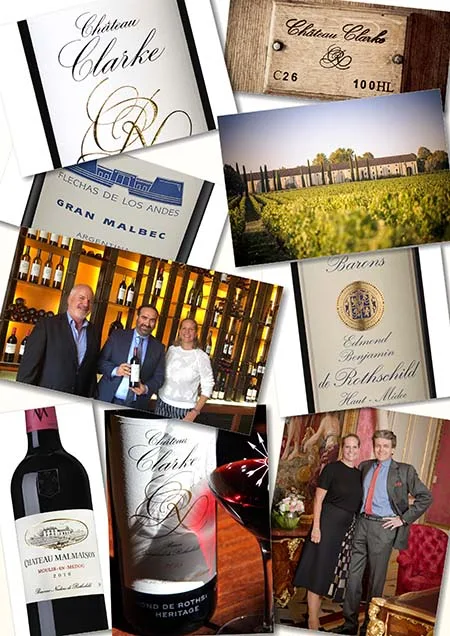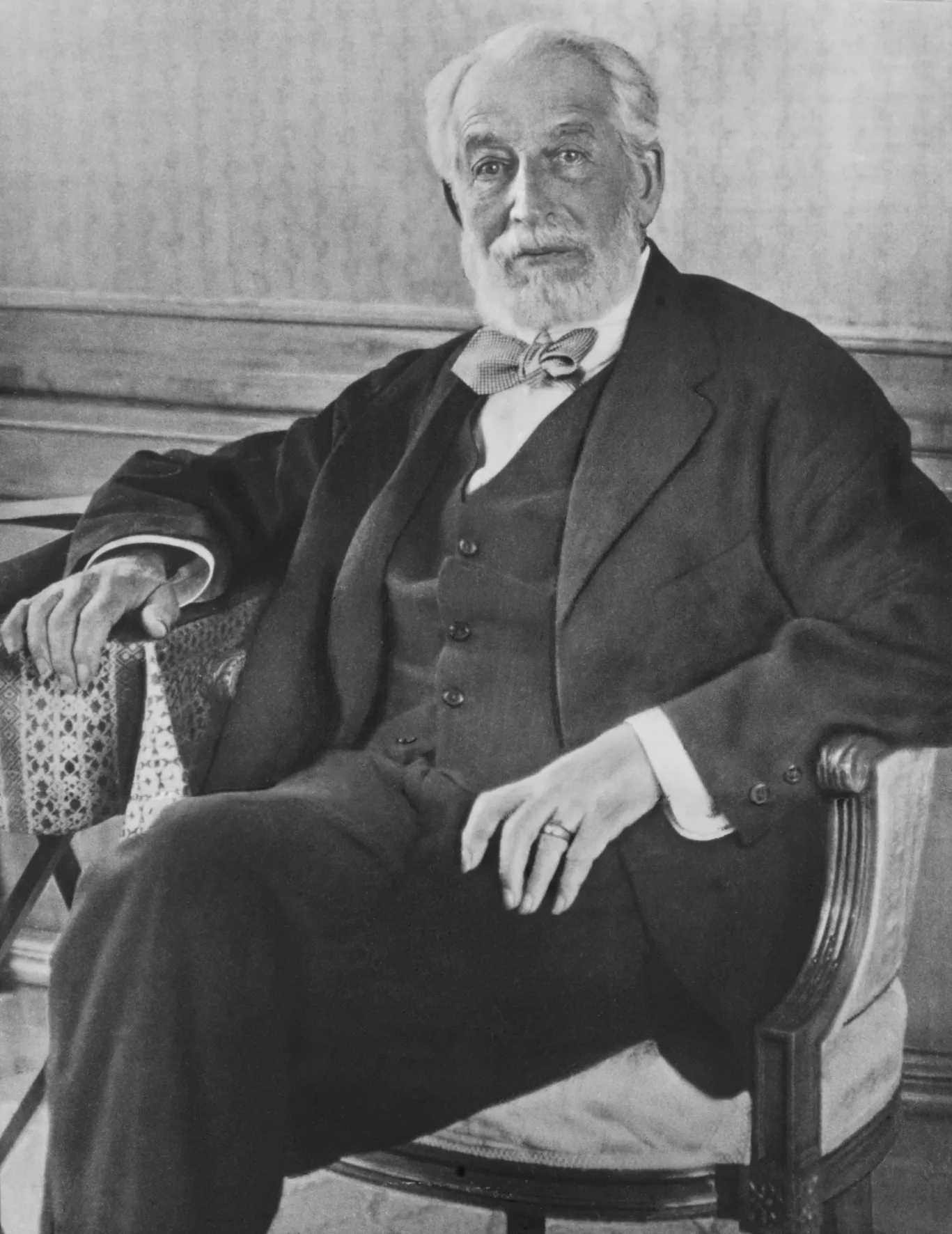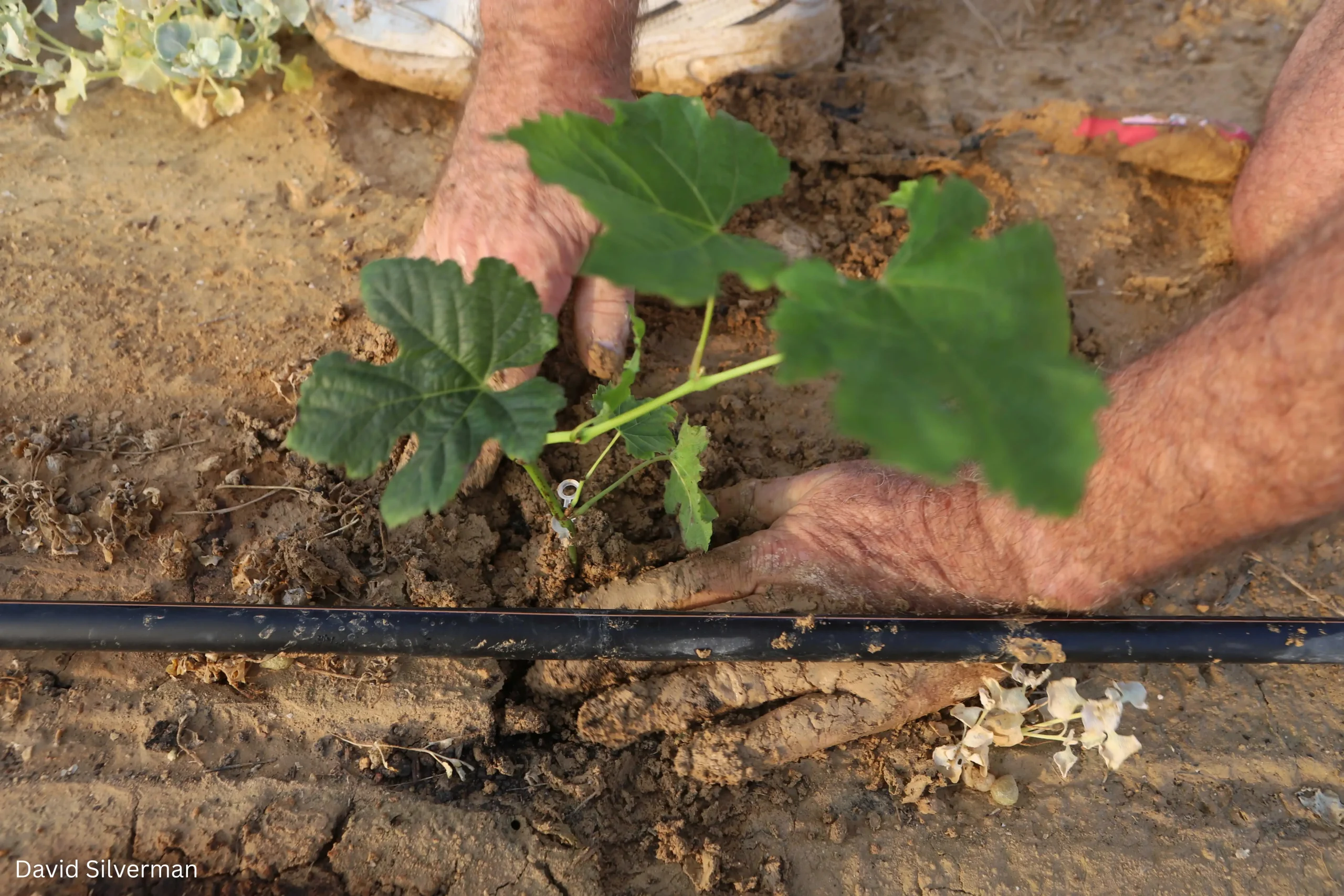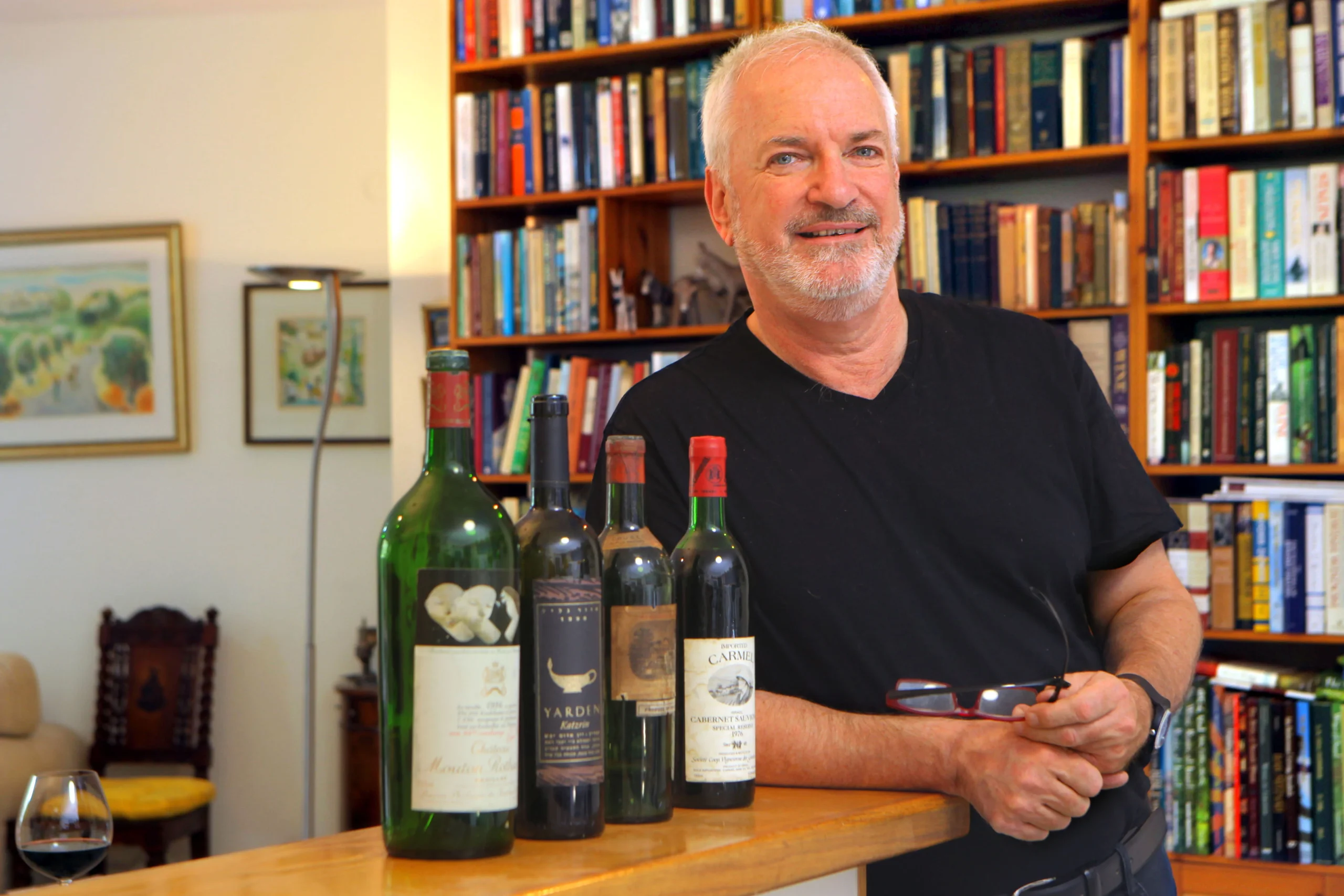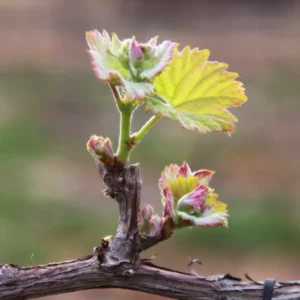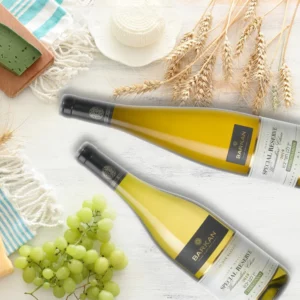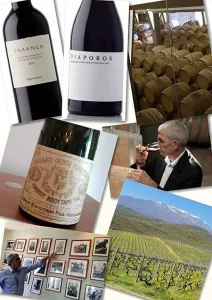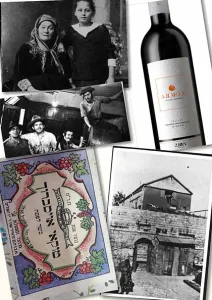In 1986, in a giant step for quality kosher wine production, Baron Edmond de Rothschild, the grandson of the Hanadiv – ‘the Known Benefactor’, insisted on producing the first quality Bordeaux wine for Jews observing kashrut. This was a milestone in kosher wine production, because the Rothschilds were always regarded like the royal family of the Jewish community. The original Baron Edmond de Rothschild had founded a modern wine industry in Israel. Furthermore, the Rothschilds were not only famous in the world of finance, but were also arguably the most famous wine family in the world.
The kosher wine they produced was called by the long name ‘Barons Edmond Benjamin Rothschild, Haut Medoc.’ This wine helped encourage other producers of non-kosher wines to enter the kosher market. It also enabled Royal Wine Corp, the world’s largest importer and distributor of kosher wines, who helped ferment the whole kosher revolution, to market kosher wine as something of quality, to be desired by those with taste. Kosher wine suddenly became aspirational. People began going to tastings and talked about perception of quality rather than just about the hechsher and price. In other words, it was a wine that inspired and created change.
Then in 1993 in another major step forward, the first Cru Classe kosher wine was produced at Chateau Giscours. This increased the appetite of wine lovers and feinschmeckers to experience quality kosher wines from the world’s great wine regions. Baron Edmond junior founded Compagnie Vinicole Baron Edmond de Rothschild (CVBER) and continued to produce his kosher Bordeaux wine. They have since added other wines to their kosher wine portfolio, like Chateau Malmaison, Les Lauriers, Flechas de los Andes and the Rothschild Champagne. Now, to celebrate the 30th anniversary of that first Rothschild wine, CVBER are now for the first time ever launching a kosher cuvee of the Grand Vin of the company, Chateau Clarke 2016.
The wine is made from 70% Merlot and 30% Cabernet Sauvignon from the Listrac region of Bordeaux. It is beautifully silky and elegant with layers of complexity and good aging potential. Its balance, with soft tannins and good acidity, give it a refreshing quality and make it a wonderful food wine. However, it is young, still a baby and would benefit from time. No doubt this new Chateau Clarke will be eagerly awaited by wine mavens. It underlines CVBER’s continued loyalty and support to the Jewish Community.
The Rothschild’s French wine story began when Baron James de Rothschild bought Chateau Lafite in 1868 for 4 million francs. His nephew and son in law, Nathaniel Rothschild from the English branch of the family, had previously bought Chateau Mouton in 1853 for 1 million francs. (He was also a nephew of Sir Moses Montefiore, from my family.) Lafite Rothschild and Mouton Rothschild, both First Growths (Premier Cru Classe) are two of the most famous wines on the planet.
Baron James’ son, Edmond de Rothschild was the one who founded a modern Israel wine industry starting in 1882, planting vineyards and building Rishon Le Zion and Zichron Yaacov Wineries, the two largest wineries in Israel. He built deep underground cellars at both at a cost of 11 million francs. The two wineries later combined under the brand name Carmel, which is still regarded as the historic winery of Israel. When James Rothschild, the son of Baron Edmond donated the cellars to Carmel in 1957, it ended any Rothschild involvement in Israeli wine.
The wine companies associated with Lafite and Mouton, respectively, Domaines Barons Rothschild and Baron Philippe de Rothschild SA, grew and expanded around the world. However, they did not invest again in Israeli wine, nor did they produce wines for the kosher community.
Therefore, it was all the more praiseworthy that Baron Edmond de Rothschild the younger made this commitment. He was the richest Rothschild and a part owner (1/6th ) of Chateau Lafite Rothschild. Yet when he had the opportunity to buy Chateau Margaux, another First Growth, he chose instead to be a pioneer and build. Memorably he was quoted as saying “I don’t want to put on other people’s slippers”. In 1973 he bought Chateau Clarke and Chateau Malmaison from the unfashionable Listrac and Moulis growing regions, in order to create and build his own wine legacy. CVBER was born.
Baron Edmond and his wife Baroness Nadine had one child, Benjamin, who took over the family interests in 1997 on the death of his father. He married Arianne and they had four daughters together. Baroness Ariane de Rothschild initially managed the non-finance part of company, which included wine, agriculture, hospitality and philanthropy. This included the Edmond de Rothschild Foundation to manage Caesarea and surrounds, which contributes to Israel until today. She showed her energy, rare abilities and a drive to get things done.
For years, the family has given millions in philanthropy. Ariane decided to modernize and professionalize this, to increase effectiveness. She wants philanthropy to be sustainable and beneficiaries to learn to run for the themselves. She explained “Traditional philanthropy is about drip feeding. Our aim is not to give fish, but to teach people to fish for themselves.”
In 2015, she was appointed Chairwoman of the Executive Committee of the Edmond de Rothschild Group, an independent and family owned company specializing in finance. Benjamin prefers sailing, hunting and driving fast cars from the grind of the business day to day. “He has great distance. I have to be hands on.” Ariane explained. She is someone who leads from the front with her heart on her sleeve, but she is also intuitive and sometimes sees things others don’t. She made many changes and went through a few ups and downs in the early days. “People don’t like change” She acknowledged ruefully.
In fact, she took on three worlds, where women have been down trodden and ignored for centuries. I refer to those bastions of male supremacy: the financial world, the wine trade and the Rothschild family! She is confident, determined and not easily deterred by the answer no. It has not been easy, but she now has the earned the respect of her peers and colleagues in the different worlds she manages. As such, she is a role model and an inspiration to women everywhere.
Baroness Ariane de Rothschild had a very international start in life. She was born in El Salvador, lived her youth in Bangladesh, Colombia and Zaire. She entered the financial world when working in New York City. She is French, speaks five languages and now lives in Geneva. A few years ago, I was fortunate to show her around Rishon Le Zion Cellars, the historic winery her family established in Israel. I found her charming, with her feet firmly on the ground and no airs and graces. In the short time I was with her, I could not help observing that she was sharp, interested, knowledgeable and very passionate about wine.
Recently, I was fortunate to meet her again at the beautiful, tranquil Chateau Clarke in Bordeaux. She is bubbly, vivacious, yet down to earth and unpretentious. What is wine to her? Ariane de Rothschild says “Winemaking is an act rooted in aesthetics….There is an undeniable extra beauty and elegance within, that is essential to me…Wine is about pleasure and sharing. Wine is very relevant to the ‘art de vivre.’ She is also passionate about all her interests and constantly dreaming. “No small dreams” she says!
Since Baroness Ariane took over at the helm, there has been changes of personnel, bringing new expertise and energy in the financial and wine companies. I learnt how CVBER has grown over the years. It is today made up of Chateau Clarke and Chateau Malmaison in the Medoc, Chateau les Laurets and Chateau de Malengin from St. Emilion (in Bordeaux in France), Bodegas Flechas de los Andes in Mendoza (Argentina), Rupert & Rothschild Vignerons in Fredericksburg (South Africa), Rimapere in Marlborough (New Zealand) and Bodegas Macan in Rioja (Spain). The wineries have 500 hectares of vines, and production has increased from 400,000 bottles in 1981 to 3.5 million today. 90% of their wines are sold in export to 80 countries. She says: “The strategy over the last 15 years has been to move towards ‘wines of the world’ from the best terroir.”
The latest addition is the Bodegas Macan project, a joint venture with the iconic Vega Sicilia, arguably Spain’s most famous winery. This project was initiated and implemented from the first prompt of a wild idea, until the first wines rolled off the bottling line by the Baroness herself. Sometimes dreams come true. “We also have to create our own legacy” she says.
The wine company has recently been rebranded under the umbrella heading Edmond de Rothschild Heritage, which includes all the family’s non-wine interests. The branding is a massive change for a family that usually embraces change slowly and with difficulty, however it is wise, looks good and is very stylish. She explains: “The renaming focuses on who we are. Our new brand is tremendous step forward, sharing our passion for a living heritage.”
She clearly relishes being in the wine trade. She explained: “The attraction of wine is the agricultural side and being responsible for the entire process from soil to bottle.” She saw similarities in managing risk in winemaking as in banking. She considered it very humbling to work in wine. “Planning is long term and there are no certainties.”
I felt her spirit in the beautiful manicured gardens of Chateau Clarke, where style, quality and beauty intermingle. The interests of the family are so diverse, but the personal imprint of the Baroness may be seen everywhere.
The EDR Heritage wines are high quality and cover a number of different styles. For instance, I enjoyed tasting and comparing the complex Le Merle Blanc de Chateau Clarke and the up front Rimapere Sauvignon Blanc, two different takes on the same grape variety. You can compare their Argentinian Malbec, South African Cabernet and New Zealand Pinot Noir. Most represent excellent value. It is clear the wine company is thriving and in an upward direction. Impressively, they also continue be loyal to the Jewish community by producing kosher wines. CVBER is today the number one producer of quality kosher wines for Royal Wines.
Baroness Ariane, who is not Jewish, constantly mentioned the importance of honoring “my father in law’s legacy” during our conversation. It is clearly fundamental to all they do.
They are aiming high. Michel Rolland is the consulting oenologist for CVBER’s Right Bank interests. He is the most famous winemaking consultant in the world, making wine in numerous countries. They have also now employed the quiet, modest Eric Boissenot, as their new winemaking consultant for their Left Bank wines.
He is most highly regarded by the leading wineries in the Medoc. It should warm the cockles of the heart of the Jewish consumer to visualize the setting when the blends are made. Imagine the Chateau Clarke winemaker Fabrice Darmaillacq and the Royal Wine Europe winemaker, Menahem Israelievitch, sitting down and deciding the final blend of Chateau Clarke together with these iconic wine consultants. This is not a team prepared to compromise on quality for kosher expedience. Clearly the investment and commitment is to make a wine suitable to bear the label.
Baroness Ariane is now leaving her own mark on the wine company and to her great credit, the making of quality kosher wines continues to be part of the company’s DNA, fulfilling and maintaining the heritage of Baron Edmond de Rothschild. When you open the Chateau Clarke 2016, raise your glass to the commitment of Baron Edmond de Rothschild for insisting on making a kosher wine over 30 years ago, and make a Le’Haim to Baroness Ariane de Rothschild for continuing and expanding on this commitment today.
Adam Montefiore has advanced Israeli wine for over thirty years. He is known as the ambassador of Israeli wine and is the wine writer of the Jerusalem Post. www.adammontefiore.com
PHOTO: Chateau Clarke & glass – David Silberman.


